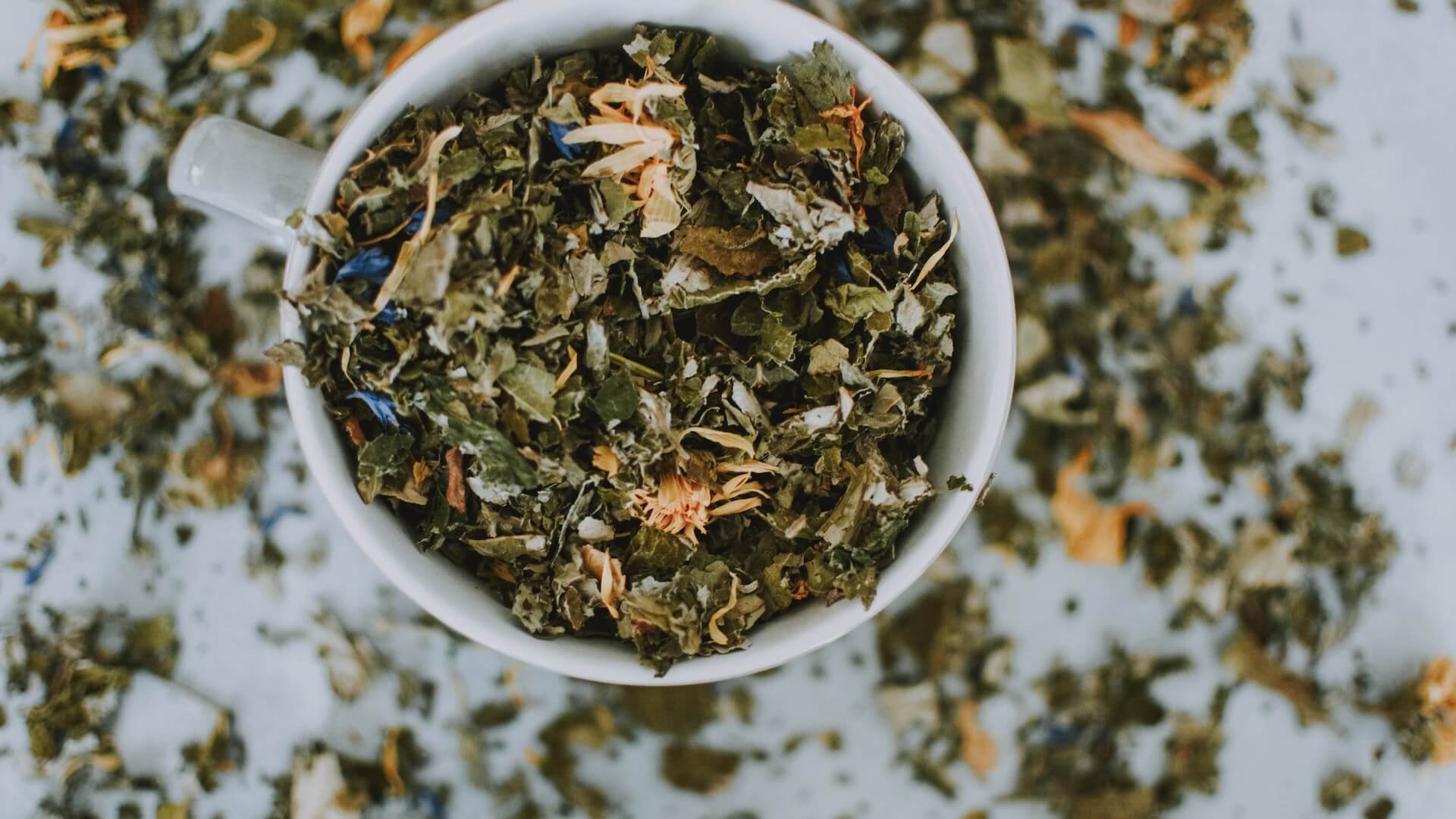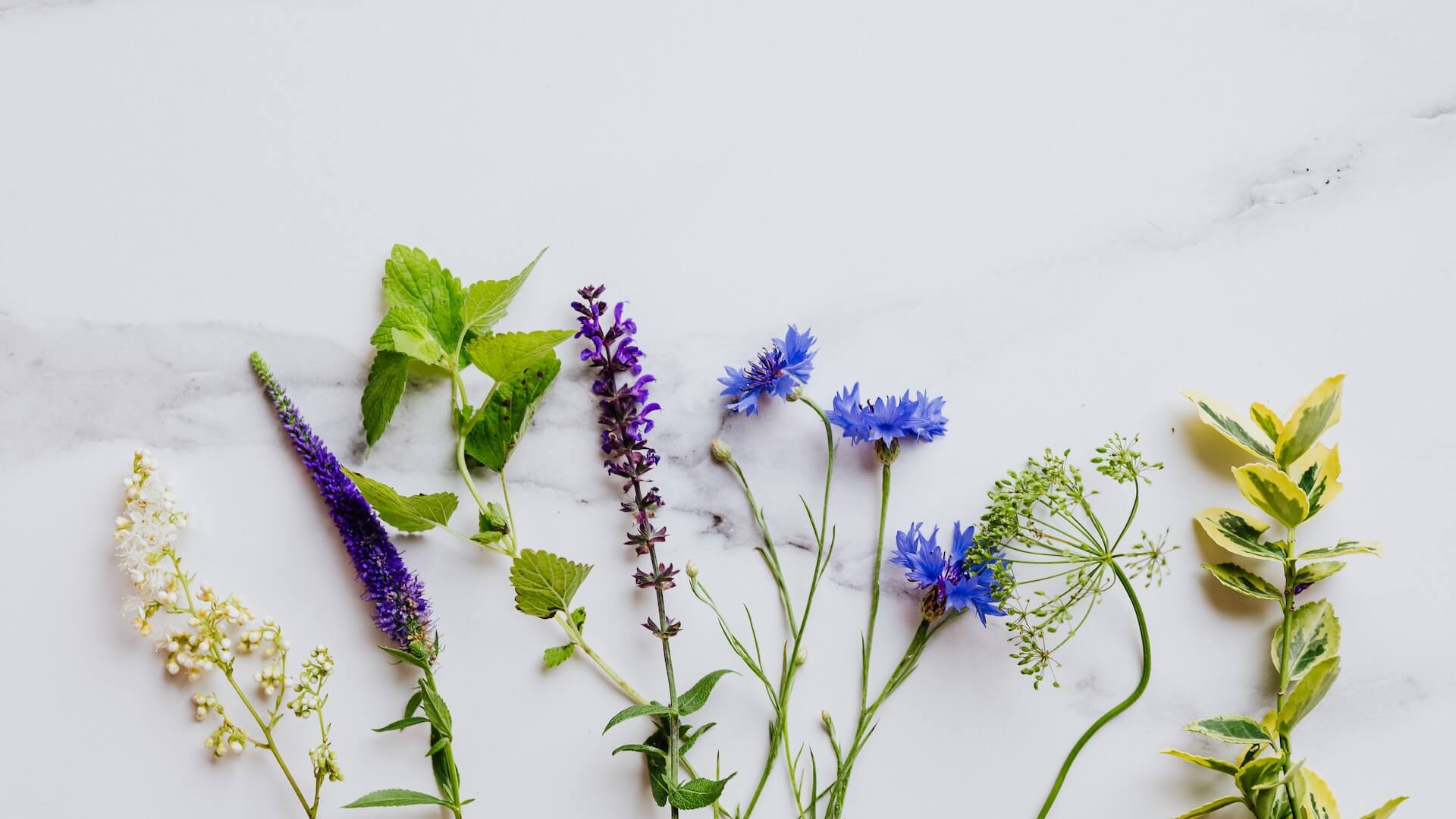Herbalism has been used for centuries as a way to treat various ailments, and recent studies have shown that it is a great alternative to modern medicine. With the growing concern for the environment, people are becoming more aware of the benefits of natural remedies. The idea of using plants to heal the body and mind is not a new one, and it has been practiced for centuries in different cultures around the world. This post will take you on a journey into the world of herbalism, exploring the healing power of natural remedies. From the benefits of using herbal remedies to the different types of plants you can use, you will discover everything you need to know about this ancient practice. So, let’s dive into the world of herbalism and explore the natural remedies that can help you lead a healthy and vibrant life.
Introduction to herbalism and natural remedies
As the world becomes more conscious of the potential side effects and long-term consequences of pharmaceutical drugs, there has been a resurgence of interest in herbalism and natural remedies. Herbalism, also known as herbal medicine or phytotherapy, is the practice of using plants and their extracts to promote health and treat various ailments. This ancient healing tradition dates back thousands of years and has been passed down through generations, harnessing the wisdom of nature itself.

What sets herbalism apart from conventional medicine is its holistic approach to healing. Instead of focusing solely on treating symptoms, herbalism seeks to address the root cause of illness and restore balance to the body. By utilizing the vast array of medicinal plants that nature provides, herbalists strive to support the body’s innate healing abilities and promote overall wellness.
Natural remedies derived from plants are often celebrated for their gentle yet effective nature. Unlike synthetic drugs, which may come with a laundry list of potential side effects, herbal remedies are typically well-tolerated and have a lower risk of adverse reactions. This makes them particularly appealing to those seeking alternative methods of healing or looking to complement their existing treatment plans.
Herbalism encompasses a wide range of practices and techniques, including the use of dried herbs, tinctures, teas, essential oils, and poultices. Each plant possesses its own unique set of properties and benefits, making the world of herbalism a vast and intriguing realm to explore.
Understanding the principles of herbalism
Herbalism is an ancient practice that harnesses the healing power of plants to promote health and well-being. It is rooted in the belief that nature provides us with a vast array of medicinal plants that can assist in the body’s natural healing processes.
At its core, herbalism revolves around the concept of holism, which treats the body, mind, and spirit as interconnected and interdependent. Rather than focusing solely on treating symptoms, herbalism seeks to address the root cause of an ailment, taking into account the individual’s unique constitution and overall health.
One of the fundamental principles of herbalism is the recognition that plants possess inherent healing properties. These properties can be attributed to the various chemical compounds found within each plant, such as essential oils, alkaloids, flavonoids, and tannins. By understanding these properties, herbalists can select the most appropriate plants for specific conditions and formulate effective remedies.
Another principle of herbalism is the importance of using whole plant preparations whenever possible. Unlike pharmaceutical drugs, which often isolate and concentrate specific compounds, herbal remedies typically utilize the entire plant or specific parts (leaves, flowers, roots, etc.). This holistic approach ensures a synergistic combination of active constituents that work together to support the body’s healing process.
Herbalists also emphasize the importance of individualization in treatment. Each person is unique, and their response to herbs may vary. Herbalists take into account factors such as age, gender, overall health, and any pre-existing conditions when crafting personalized herbal protocols. This personalized approach allows for tailored treatment plans that address the specific needs of each individual.
Furthermore, herbalism encourages a deep connection and respect for nature. Herbalists understand the importance of sustainable and ethical harvesting practices to preserve plant populations and biodiversity. They also advocate for the preservation of traditional knowledge and the integration of modern scientific research to enhance the understanding and efficacy of herbal remedies.
Exploring the benefits of natural remedies
One of the key advantages of natural remedies is their gentle yet effective approach to healing. Unlike synthetic drugs that often come with a long list of side effects, herbal remedies offer a more holistic and harmonious approach to restoring health. Many herbs contain compounds that work synergistically to support the body’s natural healing processes, addressing the root cause of the issue rather than merely alleviating symptoms.

Furthermore, natural remedies often provide a more sustainable and eco-friendly alternative to conventional medicine. With increasing concerns about the environmental impact of pharmaceuticals, herbalism offers a way to reconnect with the Earth and harness its gifts for our well-being. Growing and using medicinal plants not only reduces our reliance on synthetic drugs but also fosters a deeper appreciation for the natural world around us.
Another benefit of natural remedies is their versatility. From teas and tinctures to salves and essential oils, there are countless ways to incorporate herbs into your daily routine. Whether you’re seeking relief from stress, digestive discomfort, or sleep disturbances, there’s likely an herbal remedy that can lend a helping hand. Additionally, many herbs can be prepared at home, allowing you to take control of your health and customize treatments to suit your specific needs.
It’s important to note that while natural remedies can be powerful allies in supporting our well-being, they should be approached with knowledge and respect. Consulting with a trained herbalist or healthcare professional can help ensure proper usage and dosage, as well as prevent any potential interactions with medications or existing health conditions.
Common ailments and their herbal remedies
Herbalism has been practiced for centuries, harnessing the power of nature to heal and provide relief for various common ailments. From minor discomforts to more persistent conditions, there is often an herbal remedy that can offer relief without the side effects associated with conventional medicine.
1. Headaches and migraines:
For those plagued by frequent headaches or migraines, herbal remedies can provide much-needed relief. Feverfew, known for its anti-inflammatory properties, has been used for centuries to alleviate headaches. Peppermint oil, when applied topically or inhaled, can also help to ease tension and reduce pain.
2. Digestive issues:
Many individuals experience digestive problems such as bloating, indigestion, or acid reflux. Ginger has long been recognized for its ability to aid digestion and alleviate nausea. Chamomile tea can soothe an upset stomach and promote healthy digestion. Additionally, fennel seeds have been traditionally used to reduce bloating and ease indigestion.
3. Sleep disorders:
In our fast-paced world, sleep disorders have become increasingly common. Valerian root is a popular herbal remedy for insomnia, promoting relaxation and improving sleep quality. Passionflower, with its calming properties, can also help to alleviate anxiety and aid in achieving restful sleep.
4. Skin irritations and inflammations:
Herbal remedies are often effective in treating various skin conditions. Aloe vera, known for its soothing properties, can provide relief for sunburns, rashes, and other minor skin irritations. Calendula, when applied topically, can help to reduce inflammation and promote healing for cuts, scrapes, and wounds.
5. Stress and anxiety:
In our modern lives, stress and anxiety have become all too common. Herbal remedies such as lavender, lemon balm, and chamomile can help to calm the nerves, reduce stress, and promote relaxation. These herbs can be consumed as teas, used in aromatherapy, or taken in supplement form.
The science behind herbal medicine
The science behind herbal medicine lies in the chemical compounds found in plants. Plants produce a wide array of naturally occurring substances, such as alkaloids, flavonoids, and essential oils, which have medicinal properties. These compounds interact with our bodies in various ways, targeting specific cells, receptors, and biochemical pathways.

Research and scientific studies have shown that many herbs possess potent therapeutic properties. For example, the herb chamomile contains compounds that have anti-inflammatory and calming effects, making it useful for treating insomnia and anxiety. Similarly, the herb Echinacea has been found to boost the immune system and reduce the severity and duration of cold symptoms.
Pharmacognosy, the study of medicinal plants, plays a crucial role in understanding the science behind herbal medicine. This field investigates plant chemistry and bioactivity to identify the active compounds responsible for their medicinal effects. By isolating and studying these compounds, scientists can determine their mechanisms of action and potential applications in treating various ailments.
Furthermore, modern scientific techniques, such as chromatography and spectrometry, enable researchers to analyze the chemical composition of herbs more accurately. This allows for the standardization and quality control of herbal products, ensuring their safety and efficacy.
It is important to note that while herbal medicine has a solid scientific foundation, it is not a one-size-fits-all solution. The efficacy of herbal remedies can vary depending on factors such as the plant species, growing conditions, extraction methods, and individual differences in metabolism. Therefore, it is advisable to consult with a qualified herbalist or healthcare professional to determine the appropriate herbs and dosages for specific health conditions.
How to incorporate herbal remedies into your daily life
Incorporating herbal remedies into your daily life is a wonderful way to enhance your well-being and embrace the healing power of nature. By incorporating these natural remedies, you can support your overall health and address various ailments in a gentle and holistic manner. Here are some tips on how to seamlessly integrate herbal remedies into your daily routine:
1. Start with the basics:
Begin by incorporating simple herbs into your diet. For instance, adding fresh herbs like basil, rosemary, or mint to your meals not only enhances the flavor but also provides numerous health benefits. You can also experiment with herbal teas, such as chamomile for relaxation or peppermint for digestion.
2. Create a herbal first aid kit:
Prepare a collection of essential herbs and oils that can address common ailments and minor injuries. Lavender oil can soothe burns and promote relaxation, while tea tree oil possesses antiseptic properties. Calendula salve is excellent for soothing skin irritations, and arnica gel can provide relief from muscle soreness.
3. Explore herbal supplements:
If you’re looking to target specific health concerns, herbal supplements can be an excellent addition to your routine. Consult with a qualified herbalist or healthcare professional to identify the right supplements for your needs. Popular herbal supplements include echinacea for immune support, St. John’s wort for mood balance, and turmeric for its anti-inflammatory properties.
4. DIY herbal beauty products:
Incorporate the goodness of herbs into your skincare and beauty routine. Create your own herbal-infused oils, facial masks, or bath salts using herbs like lavender, chamomile, or rose petals. These natural ingredients can nourish your skin, promote relaxation, and provide aromatherapy benefits.
5. Cultivate your own herb garden:
There’s nothing more rewarding than growing your own herbs. Whether you have a sprawling garden or limited space for potted plants, cultivating herbs at home allows you to have a fresh and abundant supply readily available. Harvesting your own herbs ensures their potency and supports a deeper connection with nature.
The importance of consulting with a trained herbalist
Herbalists are individuals who have dedicated their lives to studying and understanding the properties, benefits, and potential risks of various herbs. They possess a deep knowledge of the intricate interactions between plants and the human body. Consulting with a herbalist can provide you with personalized advice and recommendations tailored to your specific needs and health conditions.

One of the key advantages of working with a herbalist is their ability to conduct a comprehensive assessment of your health history, lifestyle, and current symptoms. This holistic approach allows them to identify the underlying causes of your health concerns and develop a customized herbal protocol that addresses your unique situation.
Moreover, herbalists are well-versed in the art of formulation. They possess the expertise to create herbal blends and remedies that are not only effective but also safe and balanced. They understand the importance of proper dosage, potential herb-drug interactions, and contraindications, ensuring that you receive the most appropriate and beneficial herbal preparations.
Additionally, collaborating with a herbalist provides you with ongoing support and guidance throughout your healing journey. They are there to answer your questions, address any concerns, and make adjustments to your protocol as needed. Their wealth of experience and knowledge can empower you to take an active role in your own health and well-being.
Growing your own herbal garden
Growing your own herbal garden is a rewarding and fulfilling experience that allows you to tap into the healing power of nature right from your backyard. Not only does it provide you with a fresh and abundant supply of herbs, but it also connects you to a rich tradition of herbalism that has been practiced for centuries.
When you grow your own herbal garden, you have complete control over the quality and purity of the herbs you use. You can ensure that they are grown using organic methods, free from harmful pesticides or chemicals. This not only enhances the potency of the herbs but also guarantees that you are using safe and natural remedies for your health and well-being.
The process of growing your own herbal garden can be both educational and therapeutic. It allows you to deepen your knowledge of different herbs, their growth patterns, and their specific healing properties. As you cultivate and nurture your plants, you develop a profound connection with nature and gain a greater appreciation for the incredible healing potential that lies within these plants.
One of the beautiful aspects of growing your own herbal garden is the versatility it offers. You can choose to grow a wide range of herbs, each with its unique benefits and uses. From soothing lavender and calming chamomile to invigorating peppermint and immune-boosting echinacea, the options are endless. You can tailor your garden to suit your specific health needs and preferences, creating a personalized oasis of natural remedies right at your fingertips.
Not only does a herbal garden provide you with a sustainable and cost-effective source of healing herbs, but it also brings beauty and vibrancy to your outdoor space. Imagine stepping outside and being greeted by the fragrant aroma of fresh herbs, the sight of vibrant green leaves, and the gentle sway of delicate flowers. It creates a serene and inviting environment that encourages relaxation and harmony.
Whether you have a large backyard or a small balcony, there are various ways to create a herbal garden that fits your space. From traditional raised beds and containers to vertical gardens and hanging planters, you can get creative and adapt the design to suit your needs. With proper care and attention, your herbal garden will flourish, providing you with an abundant supply of natural remedies for years to come.
Conclusion
Herbalism has a rich history and offers a wide range of benefits for both physical and mental well-being. By incorporating these natural remedies into your daily life, you can support your body’s natural healing processes and promote overall wellness. Whether you’re a seasoned herbalist or just beginning to explore this fascinating field, we encourage you to continue your exploration and experience the transformative effects of herbal remedies firsthand. Embrace the power of nature and let it guide you on your path to optimal health and vitality.



